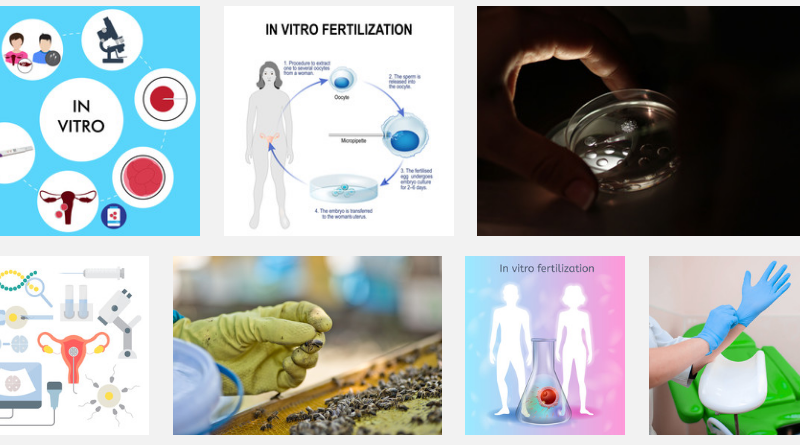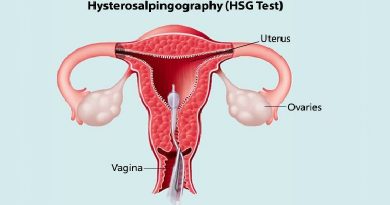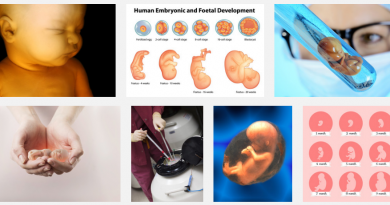IVF Treatment Procedures/Process in Nigeria
In Vitro Fertilization (IVF) is the extracting of the female eggs and fertilizing them with the male sperm cells outside the human body, a process which has given hopes to many couples who couldn’t conceive naturally for one reason or the other.
Ever since the birth of the first IVF baby in 1978, several advancements in modern medicine increased the success rate of the treatment and led to the birth of over 8 million IVF babies till date.
Today, there are several reputable centres in Nigeria where you can get successful IVF treatment.
This article will enlighten you on the procedures of IVF treatment in Nigeria to prepare you on what to expect when planning to go for the treatment.
IVF Step By Step Process in Nigeria
Generally, IVF procedures in Nigeria are the same as the procedures in every part of the world. The following steps below outline the processes that you will undergo during your treatment.
Step 1: Meeting With An IVF Specialist
Before you can undergo IVF treatment, you need to first speak with and be examined by an IVF specialist. The job of the specialist is to prepare you for the process and address your concerns or questions.
Do you own a business? Do you want to own a business?

Hot New Exclusive Training By A Professional Videographer Reveals 7 Amazing Secrets of Creating Stunning Product Videos That Can Make Huge Profits for Any Business in Nigeria...Using Just Your Smartphone!
YES, I WANT ACCESS TO THE EXCLUSIVE TRAINING FOR FREENote that there are several tests the specialist will suggest that you undergo and they are vital to the success of the treatment. These tests will help identify the cause of infertility and the feasibility of the treatment for you. The tests could include:
- Blood and urine test
- Breast examination and pap smear
- HIV/Aids and Hepatitis B and C tests for both partners
- Genetic testing to check for heredity conditions
These tests will determine if you are eligible and physically prepared to undergo IVF treatment.
Step 2: Transvaginal Scanning
Transvaginal scanning (transvaginal ultrasound) is a type of pelvic ultrasound used by doctors to examine the female reproductive organs. Before you undergo IVF treatment, the doctor will have to perform an ultrasound scan to examine the ovaries and check for cysts. If a cyst is detected, further treatment will be halted until the cyst is resolved. The cyst might be resolved spontaneously or through cyst aspiration. You will move on to the next step once this is cleared.
Step 3: Ovulation Induction
In this step, the doctor will monitor your ovaries and the timing of egg release to make sure that your ovaries are producing eggs. You might also be given several fertility medications to stimulate and improve the chances of collecting a significant number of eggs.
You might also be required to take a fertility hormone called follicle stimulating hormone (FSH); this hormone increases the number of eggs the ovaries will produce and when fertilized will provide you with more choices of embryos to choose from in your treatment. Overall, this is important for increasing the success rate of the treatment.
However, if you are unable to produce eggs, then a donor will be required to provide the eggs needed for the IVF treatment.
Step 4: Egg Retrieval
In this step, a very thin needle is passed through the upper vaginal walls guided by the ultrasound image and fluid is removed from the follicles under gentle suction.
Immediately after retrieval of the follicle, the egg is isolated from the follicular fluid and placed in a culture dish containing nutrient media. It is then transferred to an incubator.
Do you own a business? Do you want to own a business?

Hot New Exclusive Training By A Professional Videographer Reveals 7 Amazing Secrets of Creating Stunning Product Videos That Can Make Huge Profits for Any Business in Nigeria...Using Just Your Smartphone!
YES, I WANT ACCESS TO THE EXCLUSIVE TRAINING FOR FREEDuring this process, you will be sedated or given pain medication to ease any discomfort you may experience. The procedure is also minor and would last for about 15 – 20 minutes.
Step 5: Fertilizing the eggs
For the eggs to be fertilized, a sperm sample either from your partner or a donor is required. The most active sperm is mixed with the egg for fertilization to occur. In some cases, the sperm is directly injected into the egg. Next, the sperm and egg are placed into an incubator and monitored to make sure it develops into a healthy embryo.
Step 6: Embryo Transfer
After a few days of fertilization, the embryos will be inspected and the healthiest or best-appearing embryo(s) will be selected for transfer.
A speculum is placed into the vagina and the embryo(s) is transferred through a small plastic tube placed through the cervix into the uterine cavity. This embryo transfer procedure is far simpler than the egg collection process and wouldn’t require sedation or pain medication in most cases.
The number of embryos transferred will depend on a number of factors and are all aimed at improving the success rate of the treatment.
Step 7: Hormonal Support
Progesterone supplements are administered for the successful attachment of the embryo(s) to the uterine line. The supplements could be administered via the vaginal or intramuscular route. This hormone medication will continue until your pregnancy test and if the test is positive, you may be advised to continue with the medication for several more weeks.
Step 8: Pregnancy Test
A pregnancy test is taken 9 – 12 days after embryo transfer. If positive, the test is usually repeated 2 days to confirm. However, if the test is negative, the doctor might ask you to stop taking the hormone medication.
Step 9: Pregnancy Follow-up
For positive results, early pregnancy follow-up is important to identify early miscarriages and to help counsel you regarding the status and treatment of multiple gestations.
Early pregnancy follow-up also helps detect abnormalities like ectopic and heterotopic pregnancies.
After patients are confirmed pregnant, the IVF treatment is termed successful and the baby, when born, will be just like every other baby conceived naturally. You will also have to sign up for maternity care during your pregnancy to ensure a smooth and safe delivery.
Do you own a business? Do you want to own a business?

Hot New Exclusive Training By A Professional Videographer Reveals 7 Amazing Secrets of Creating Stunning Product Videos That Can Make Huge Profits for Any Business in Nigeria...Using Just Your Smartphone!
YES, I WANT ACCESS TO THE EXCLUSIVE TRAINING FOR FREEIVF Treatment Success Rate
One of the main factors affecting the success rate of IVF treatment is the age of the couple in question. The younger the couple the more viable the treatment would be and vice versa.
| Couples below 35 years | 40 – 45 % |
| Couples between 35 – 39 years | 30 – 35% |
| Couples older than 40 years | 10% or less |
It is also important to carry out your IVF treatment in a reputable fertility centre to ensure that the process is safe and hassle-free.
Related




